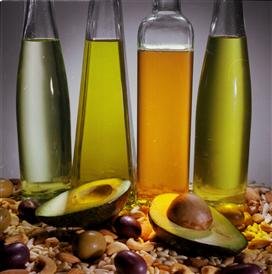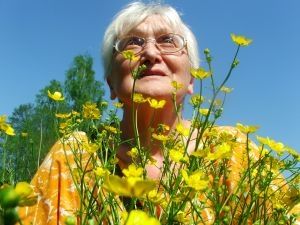Fats in food – to have or not to have?
Source: http://www.building-muscle-guide.com/food-for-building-muscle.html
Fats!?-they are bad for your health! Especially for the old with predisposition to heart ailments, diabetes etc., they are a strict no. Is this true? Well not entirely. Contrary to popular belief, fats are actually important for a healthy living. They provide energy as well as protect the cell walls. Besides they also aid digestion of fat soluble vitamins such as A, D, E and K.
The word to go with fat is moderation. Eat moderate amounts and the right kinds, fats will help one sail through old age better. The average elderly should consume about 2-3 teaspoons of “good fat” everyday. This allowance should not be wasted on cakes, biscuits or sugary drinks. Instead pick items from the following list of food items:
- Fish such as salmon, sardines, rainbow trout, anchovies, mackerel, eulachon, char and herring
- Flaxseed or walnut oils (these oils are only to be used cold, not to be heated)
- Nuts and seeds (almonds, walnuts, peanuts, cashews, ground flaxseed)
- Vegetable oils (olive, canola, soybean, peanut, sesame oil)
- Soft tub margarine made from the oils above that say ‘non-hydrogenated’ on the label
- Avocado
- Wheat germ
- Omega 3 fortified foods such as eggs, yogurt, soy drinks
Use the above sources-mix and match to help you body receive the right kind of fats. Things to avoid are:
- Butter
- Hard margarines
- Ghee
- Lard
- Vegetable shortening
- Whole milk including coconut milk
- Cream, sour cream and ice cream
- Cheese and paneer
- Fatty red meat (pork hock, sausage, bacon, preserved meats)
- Palm and coconut oils
- Partially hydrogenated vegetable oils
- Baked items (cookies, pies, cakes, pastries)
Fat is after all not so bad and it helps keep your body healthy. If one knows how to use it well, it is a food for the soul :)!
Sources:
1. http://www.caring-for-aging-parents.com/elderly-nutrition-healthy-eating-tips.html
2. http://www.who.int/nutrition/topics/ageing/en/index1.html
Iron in Old Age
Iron deficiency among adolescent girls and women of child bearing age has been an oft discussed topic. There have been pan-country programmes to provide supplements to these groups of girls and women. Role of iron in helping young children remain physically active and concentrate in classes etc. have been well established too. But how about iron requirements of the elderly? Does the declining physical and mental activity with age mean that they no longer need as much iron?
Nutritionists say, elderly may in fact be in need of iron supplementation. In a study conducted in Pennsylvania actually found a large percentage of women they tested on to be iron deficient. What effects does this deficiency of iron among the elderly lead to?
- Declining ability for physical activity-Iron, embedded in hemoglobin, helps transport oxygen to various parts in our body. Hemoglobin content in blood declines with declining iron intake. Deficiency of this carrier of oxygen in our bodies reduces the capacity of our muscles to act swiftly. This causes tiredness, short breath-in general an overall ability to strain the body physically.
- Declining ability to engage in meaningful mental exercises-Like our muscles need oxygen to move, our brain needs oxygen to think and concentrate. The deficiency of iron leads to the same effects it has on our physical muscles. This may reduce an elderly person’s ability to think clearly and concentrate as well as balance the body. This may lead to memory losses or at times physical injuries due to falls.
- Declining ability to fight infection-studies have shown that the response to infection among the iron deficient people is much more than the ones who have adequate iron. This also translates to longer healing. Increased chances of infection and longer healing processes further deplete an elderly body.
Iron supplements may be needed in some cases but eating right can help prevent iron deficiencies or the need for supplementation. The foods that are rich in iron are meats, sea food, green leafy vegetables, beans and lentils. Even when people consume good amounts of these foods, they may suffer from iron deficiency. This may happen due to poor absorption. Ability to absorb iron may decline with age. How do we overcome this problem of absorption? There are two simple steps:
- Have vitamin C rich foods such as citrus fruit, guava, gooseberry, papaya etc. with the iron rich food
- Avoid intake of tannin rich food such as tea and coffee for an hour before and after food consumption
References
http://www.cdc.gov/nutrition/everyone/basics/vitamins/iron.html#Iron Sources
http://www.nutraingredients.com/Research/Elderly-should-consider-iron-supplementation
Image Source: http://www.ehow.com/about_5422410_postmenopause-iron-supplements.html
Nutrition during Old Age
Source: jessnutrition.blogspot.sg
Old age is irreversible but we can ensure that even in our grey days we remain healthy and active. Nutritionists say, eating right can go a long way in helping maintain a more active and productive lifestyle.
As a person ages, the basal metabolic rate (the rate at which the body consumes energy) declines. This would reduce the need for energy in our diets. If we continue usual consumption of energy rich foods such as cereals, sugar, oil, butter etc. chances of developing obesity and subsequently diabetes, heart ailments etc. would increase rapidly. In fact these high energy foods are known to make one more sedentary therefore perpetuating the problem. So, these should be consumed in moderation. The requirements of proteins for the elderly are the same as that of a young person. In fact as some of the tissues degenerate with advancing age, it is good to consume proteins in the appropriate quantity. This will help provide the building blocks to regenerate some of these broken tissues and therefore maintain ones’ body. The sources of proteins are milk and milk products, meat, fish etc.
Carbohydrates are one of the major sources of energy. As energy requirements decline so should the consumption of sources of carbohydrates. Cereals in the form of rice, bread etc. should be reduced. One should move from consuming refined carbohydrates to more complex forms such as whole grains and fruit and vegetables. Another source of energy is fat. Though, there is no need to reduce the amount of fat in the diet (30% of all energy should come from fat), but if one is obese, it is good to cut down the intake. Also modification of the type of fat consumed is important. Saturated fats such as butter should be avoided while fats from fish sources would be more useful.
Calcium and vitamin D are critical for the aging body. Bone demineralization, which leads to weak bones, needs to be prevented and calcium and vitamin D are important for bone health. Milk and milk products should be consumed in moderate amounts to ensure a good supply of calcium in the diet. Sun shine is the best source of vitamin D but in case some elderly are confined indoors, supplements should be provided. Vitamin A, E and C are important to maintain immunity as well as prevent heart ailments and cancer by providing anti-oxidants. These vitamins are available from fruits and vegetables and therefore these should be consumed aplenty. Vitamins also provide the necessary fiber to prevent constipation. The last and one of the most important things is to ensure a good intake of fluids throughout the day. They keep the body clean and hydrated.
Some quick tips:
- Eat a variety of foods with lower amounts of carbohydrates and fats and higher amounts of fruit and vegetables.
- Break meals down into smaller sizes to aid digestion.
- The consistency of the food should be modified based on dental health.
- One should be physically active and should make at least some light physical activity a part of their daily routine.
- Start healthy eating earlier in life to ensure good health during old age.
Further reading
- Dr. Seema Puri, Nutrition in Old Age, Helpage India.
- http://www.who.int/nutrition/topics/ageing/en/index1.html




